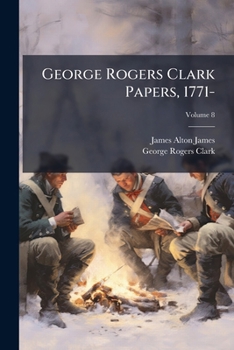George Rogers Clark Papers, 1771-
This volume of the "George Rogers Clark Papers" offers a detailed look into the life and activities of George Rogers Clark, a key figure in the American Revolutionary War and the early expansion of the United States. Covering the period from 1771 onwards, these papers provide invaluable primary source material for understanding the military strategies, political maneuverings, and personal experiences that shaped the frontier during this pivotal era. Readers will find insights into Clark's campaigns in the Northwest Territory, his interactions with Native American tribes, and his role in securing vital land for the nascent nation.
Edited by James Alton James, this collection is essential for historians, researchers, and anyone interested in the American Revolution and the early development of the American West. The "George Rogers Clark Papers" represent a cornerstone of historical scholarship, preserving the legacy of a remarkable leader and offering a rich tapestry of life on the American frontier.
This work has been selected by scholars as being culturally important, and is part of the knowledge base of civilization as we know it. This work was reproduced from the original artifact, and remains as true to the original work as possible. Therefore, you will see the original copyright references, library stamps (as most of these works have been housed in our most important libraries around the world), and other notations in the work.
This work is in the public domain in the United States of America, and possibly other nations. Within the United States, you may freely copy and distribute this work, as no entity (individual or corporate) has a copyright on the body of the work.
As a reproduction of a historical artifact, this work may contain missing or blurred pages, poor pictures, errant marks, etc. Scholars believe, and we concur, that this work is important enough to be preserved, reproduced, and made generally available to the public. We appreciate your support of the preservation process, and thank you for being an important part of keeping this knowledge alive and relevant.





